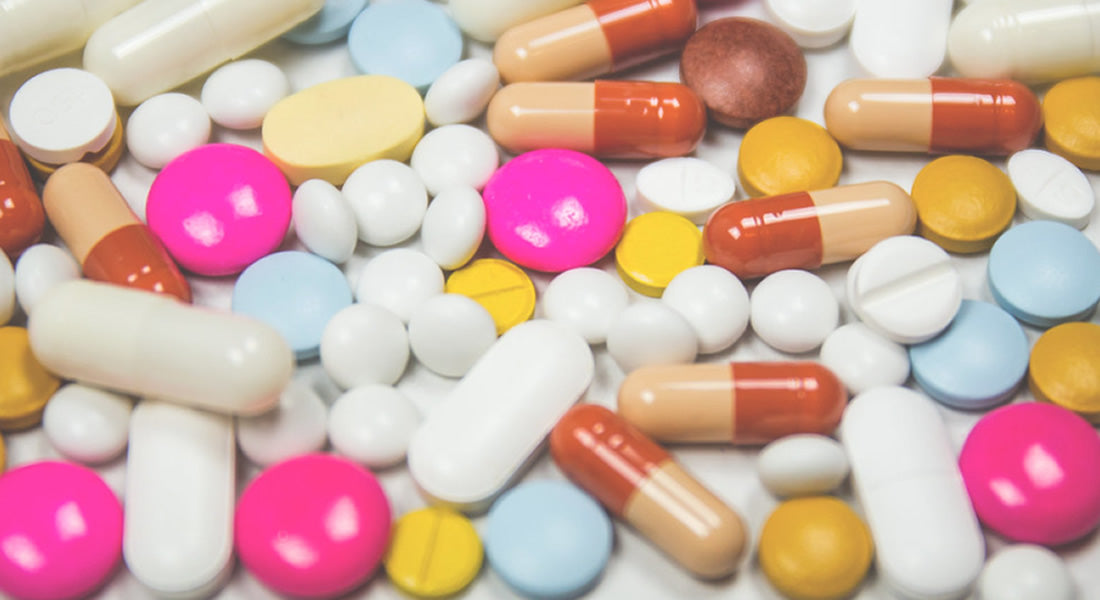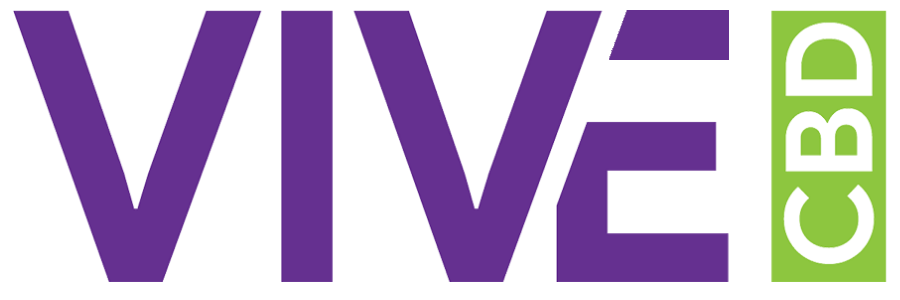
CBD is a powerful, life-changing, all-natural and organic alternative therapy treatment sourced from industrial hemp that upon ingested daily has drastically-improved the quality of many lives since becoming a household word since 2014.
Yet, even with CBD now available OTC (Over-The-Counter) it’s important everyone consider the possible side-effects or dangers associated with CBD use – which stem primarily from potential interactions that Cannabidiol may have with other OTC or prescription-based drugs that a primary health care provider may prescribe.
According to findings published by the Indiana University Department of Medicine in recent years specific OTC and prescription medications that shouldn’t be taken along with CBD products such as CBD edibles, CBD oils, CBD vaping products, etc.
*Angiotensin II Blockers (ARBs) also commonly-known as blood pressure medications that block the effects of angiotensin II in the body, which is a chemical that works to narrow blood vessels while at the same time widens the blood vessels to allow blood flow – which then lowers blood pressure.
Common ARBs that may be prescribed by doctors include any of the following brand-name medications: Atacand (Candesartan), Avapro (Irbesartan), Benicar (Olmesartan), Cozaar (Losartan), Diovan (Valsartan), Micardis (Telmisartan), and Teveten (Eprosartan).
Does CBD interfere with blood pressure medicine?
It depends on the person. Reducing blood pressure is desired for different reasons. Whether to reduce the risk of a heart attack as a result of hyper-tension, some scientific findings have found that CBD (depending on the individual) may either increase or decrease blood pressure in people – regardless of the common-believed that the ingestion of THC may reduce blood pressure in everyone.
Those interested in CBD therapy should consult their primary health care provider or an experienced physician with a background in CBD use before starting a CBD daily regime.
A 3-month blood pressure monitoring program may be suggested to gauge a history with high pressure, etc.
*Antiarrhythmics are generally-considered medications to prevent, assist, or treat issues relating to heartbeats.
Whether the heart’s rhythm is being thrown off by an issue with its electrical system, or the heart is being too fast or too slow, certain medications, Atropine, for example may be prescribed.
As with the Angiotensin II Blockers (ARBs) it is commonly-believed that ingesting CBD Oil on a regular basis may not only reduce the blood pressure in human’s but that it can also help prevent arrhythmias as well – even though, there is little or no scientific evidence in support of the these claims to date.
The general concern that arises when it comes to considering the use of CBD Oil use with any OTC or prescription medicine is in how the human body processes both medicines. For example, any CBD product – from CBD Oil to CBD edibles – must be broken down within the body by the liver.
When CBD Oil is used concurrently with an prescription medicine such as one for high blood pressure, for example – a competition is held between the two within the body which means that the CBD could come to interfere with the delivery of the prescription medicine which a user has come to rely on to assist in the lowering of blood pressure, etc.
Other drugs that may interact with daily CBD use:
Class of Drug Common Drug Names
|
Steroids and Corticosteroids |
Hydrocortisone, Cortisone, Prednisone, Triamcinolone, Dexamethasone |
|
Calcium channel blockers |
Amlodipine, Diltiazem, Felodipine, Isradipine, Nicardipine, Nifedipine, Nisoldipine, Verapamil |
|
Antihistamines |
Brompheniramine, Cetirizine, Chlorpheniramine, Clemastine, Diphenhydramine, Fexofenadine |
|
Prokinetics |
Domperidone, Metoclopramide, Levosulpiride, Renzapride, Prucalopride |
|
HIV antivirals |
Abacavir, Didanosine, Emtricitabine, Lamivudine, Stavudine, Tenofovir, Alafenamide, Disoproxil fumarate, Zidovudine |
|
Immune modulators |
Immune globulins, Immunosuppressive agents, Immunostimulants, bacterial and viral vaccines |
|
Benzodiazepines |
Alprazolam, Clobazam, Clonazepam, Clorazepate, Chlordiazepoxide, Diazepam, Estazolam, Lorazepam |
|
Antibiotics |
Amoxicillin, Doxycycline, Cephalexin, Ciprofloxacin, Clindamycin, Metronidazole, Azithromycin, Sulfamethoxazole-trimethoprim, Amoxicillin-clavulanate and Levofloxacin |
|
Anesthetics |
Barbiturates, Amobarbital, Methohexital, Thiamylal, Etomidate, Ketamine, Propofol |
|
Antipsychotics |
Aripiprazole, Asenapine, Cariprazine, Clozapine, Lurasidone, Olanzapine, Quetiapine, Risperidone, Ziprasidone |
|
Antidepressants |
Citalopram, Escitalopram, Fluoxetine, Fluvoxamine, Paroxetine, Sertraline, Vortioxetine, Vilazodone |
|
Anticonvulsants |
Acetazolamide, Carbamazepine, Clobazam, Clonazepam, Ethosuximide, Fosphenytoin, Gabapentin, Lacosamide, Lamotrigine, Levetiracetam, Methsuximide, Nitrazepam, Oxcarbazepine, Paraldehyde, Phenobarbital, Phenytoin, Primidone, Topiramate, Valproic acid, Vigabatrin, Felbamate, Tiagabine, Hydrochloride, Zonisamide |
|
Beta-Blockers |
Acebutolol, Atenolol, Betaxolol, Bisoprolol fumarate, Carvedilol, Esmolol, Labetalol, Metoprolol, Nadolol, Nebivolol, Penbutolol, Propranolol, Totalol, Timolol |
|
Proton-Pump Inhibitors |
Omeprazole, lansoprazole, Pantoprazole, Rabeprazole, Esomeprazole, Dexlansoprazole |
|
Non-Steroidal Anti-Inflammatory Drugs |
Aspirin, Celecoxib, Diclofenac, Diflunisal, Etodolac, Ibuprofen, Iketoprofen, Ketorolac, Nabumetone, Naproxen, Oxaprozin, Piroxicam, Salsalate, Sulindac, Tolmetin |
|
Oral Hypoglycemic Agents |
Sulfonylureas, Meglitinides, Biguanides, Thiazolidinediones, alpha-Glucosidase inhibitors, DPP-4 inhibitors, SGLT2 inhibitors, Cycloset |
|
Sulfonylureas |
Glynase, Micronase, Amaryl, Diabinese, Glucotrol, Tolinase, Tolbutamide |
Broad-Spectrum CBD Oil and Steroids or Corticosteroids
Steroids and Corticosteroids*
*The primary reason that steroids or corticosteroids are on any list of drugs that shouldn’t be taken with CBD (like Hydrocortisone, Cortisone, Prednisone, Triamcinolone, Dexamethasone, etc.) is because of how they interact with one another when taken at the same time. And it’s the same in animals too with CBD pet products.
When on a cycle of steroids one should avoid using cannabidiol because of how (Cbd) and steroids are both processed in the liver – both inhibit a key enzyme within the liver which, in effect, may increase the experiencing the side-effects of both.
Calcium Channel Blockers and CBD Oil
Calcium channel blockers*
*Because Calcium channel blockers like Amlodipine, diltiazem, felodipine, isradipine, nicardipine, nifedipine, nisoldipine, verapamil are essentially medicines that work to improve the functioning of the human heart it’s also a good idea to abstain from the use of CBD if you’re taking any of the above medicines for a heart condition.
If a doctor has prescribed someone a Calcium channel blocker then avoiding CBD products like full spectrum CBD gummies and even CBD honey sticks is a good idea until you’ve spoken directly with your primary care provider or a healthcare professional with experience in CBD as an alternative therapy before starting on a daily CBD regime – as some scientific finding have suggested that using CBD Oil and a prescription Calcium channel blocker concurrently may be problematic due to a potential increase in blood thickness as side-effect.
Broad-Spectrum CBD Gummies and Antihistamines
Antihistamines*
*If any CBD and Antihistamine products have anything in common with one another it’s that their side-effects are strikingly similar. A couple of the most frequently-seen side effects of both CBD Oil and prescription antihistamines like Brompheniramine, Cetirizine, Chlorpheniramine, Clemastine, Diphenhydramine, and Fexofenadine are sleepiness and fatigue.
CBD Oil and Prokinetics
Prokinetics*
*As with Angiotensin II Blockers, how CBD edibles or CBD oil interact with prokinetics, scientific studies have found, depends on the person.
OTC or prescription prokinetics are intended to help an individual experience an increase in gut motility. Whereas one of the side-effects of CBD (high concentrations) that some have experienced is a decrease in motility – it might be a good idea for those with a curiosity about CBD to consult with a primary health care provider when on a prescription, long-term prokinetic like Domperidone, Metoclopramide, Levosulpiride, Renzapride, or Prucalopride.
HIV Antivirals and CBD
HIV Antivirals*
*Recent studies have reported how Cannabidiol (Cbd) and HIV Antivirals like Abacavir, Didanosine, Emtricitabine, Lamivudine, Stavudine, Tenofovir, Alafenamide, Disoproxil, Fumarate, and Zidovudine interact with one another.
A recent study, for example, has shown how the effects of Cannabis, THC, and CBD become increased when they are taken alongside HIV Antiviral drugs.
Immune Modulators and CBD
Immune Modulators*
The primary reason why it's advised to avoid the concurrent use of CBD products and Immune Modulators is based on the health of the person taking them. Immune modulators are taken to either boost or suppress the body’s immune system. Even though there is some scientific evidence available which may denote some positive benefits that CBD may have on the immune system, it can also seriously hinder it as well.
A person with a healthy immune system will experience the suppression of the immune system when they’ve consumed either THC or CBD. A person with a compromised immune system, however, may experience many benefits from CBD consumption – such as the replacement of damaged endocannabinoids and receptors within the immune system.
The problem, however, comes again from how the body processes the CBD and whatever immune modulator a person is taking at the same time. Because the liver uses the same enzymes to process both the general concern is that one gets priority over the other, therefore, reducing the maximum benefits that either has to offer.
What medications does CBD interfere with?
Like any of the others mentioned previously, CBD can interact with dozens and dozens of OTC and prescription medications. CBD interferes with medicines primarily because of how it is metabolized in the human body – it is processed in the liver by the same enzymes that process many OTC and prescription medications.
CBD Oil and CBD edibles may interfere with medicines like such OTC and prescription medications as Benzodiazepines (Xanax), Antibiotics, Anesthetics, and Beta-Blockers because of how it’s processed.
When two different chemicals are in competition for metabolization in the liver there is a possibility that one will win out over the other – which may leave the user experiencing unpleasant and/or fatal side effects due to elevated drug levels in the system.
When multiple-chemicals are in competition with one another in the liver it can also lead to the user experiencing the speeding up or the slowing down of medication metabolization which can lead to very dangerous side effects but also lead to organ damage / failure, etc.
Side effects may range from the experiencing of extreme dizziness, sleepiness, diarrhea, fatigue, even seizures – a range of side-effects that are produced from experiencing the antithetical responses within the system itself as a result.
CBD and THC may inhibit the enzymes in the stomach which activate the production of stomach acid – however, when someone who suffers from the production of too much stomach acid production takes CBD while they are taking a proton-pump inhibitor (PPI), for example, then they will experience the same awful side effects that they were trying to eliminate when they began taking either an OTC or prescription PPI in the first place.
Even though there is new scientific evidence coming out on a monthly-basis, there is still so much that we don’t know about CBD therapy yet when it comes to utilizing it alongside over prescription medicines. Like with anything, there may be Pros and Cons.
Someone that is curious about CBD therapy that is also currently on a prescription medicine should always consult with a primary health care provider before beginning any daily CBD regime regardless of what is written on the internet, etc.
